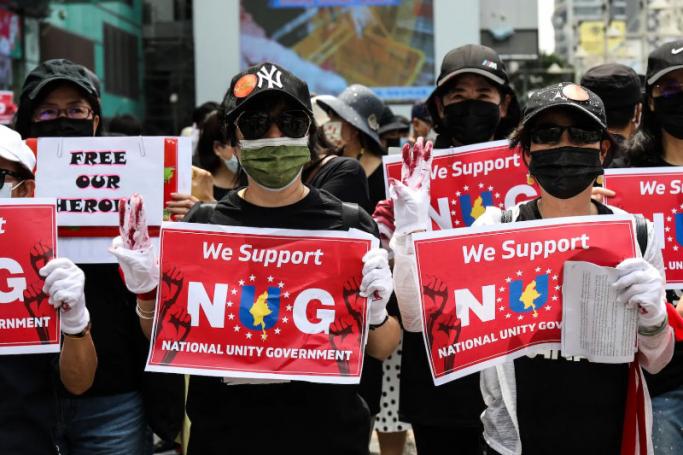Change is in the wind as Myanmar’s opposition forces step up the fight against the illegal military junta that grabbed power in a coup in February 2021.
A useful assessment of the changes is provided in a recently-released report entitled “Effective Control in Myanmar” by the Special Advisory Council for Myanmar or SAC-M.
A key finding of the report published this month is that the National Unity Government (NUG) has expanded control over territory in Myanmar and that the military junta is on the backfoot and losing ground.
The report by the SAC-M, a panel of former UN experts, claims that the junta only has effective control over 17 per cent of the country, while the NUG and its allies control 52 per cent. The remaining territory is contested space, and often the target of indiscriminate shelling against civilian communities and arson which has so far destroyed about 28,000 homes.
This swing in favour of the NUG and the resistance forces is crucial to understand but no reason to be popping champagne corks just yet. The junta is clearly losing ground. But it is incumbent on the NUG to effectively fill the vacuum.
The country has resisted becoming a failed state due to the growing capacity of the NUG and resistance to administer government functions and deliver essential services to millions of people during extreme crisis, the report says. Resistance organisations in Myanmar have developed a range of governance systems in areas under their control. These include decades-old parallel public administration and social service bodies of Ethnic Revolutionary Organizations (EROs) as well as newly-emerging initiatives managed by Civil Disobedience Movement (CDM) workers, community volunteers and People’s Defence Forces (PDFs). Many of the new initiatives receive assistance and oversight from the NUG or from consultative councils made up of political parties, EROs and other political actors. All of these institutions are more critical than ever to fill the void left by the junta-induced collapse of the central state and are proving their resilience and effectiveness in the crisis.
Calls are growing on an international level to recognize the NUG and Myanmar’s current representative at the United Nations as the true representatives of the Myanmar people.
The NUG has the greatest claim to effective control of the country. It is at the centre of a democratic revolution shaped by organisations opposed to the Myanmar military junta. These organisations are the de facto authorities across more of the territory of Myanmar and for more of the population than the junta and are administering a growing range of government functions.
The NUG and its resistance forces provide a do-or-die opportunity to once and for all get rid of the brutality of Myanmar military control. The democratic revolution, solidifying around a shared vision of federal democracy, has a viable pathway to ending decades of oppression by the military. The mass uprising of Myanmar people against a return to autocratic military rule continues to build in intensity and is not going to cease anytime soon.
Clearly, the military junta is growing desperate. It is losing ground and losing the ability to provide functions of government in large swathes of the country. The military’s strategy to gain control is focused on committing mass atrocities and causing humanitarian suffering amongst the civilian population.
As the junta loses control at an increasing rate, the NUG and its democratic revolution as both armed and non-violent resistance to the junta continues to build. International support is required to put the country more decisively on a path to peace, stability and civilian rule. Denying recognition to the junta and providing it instead to the NUG is clearly a priority.












